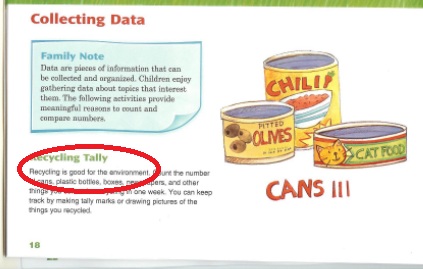It is extremely common in the modern “E”nvironmental movement to see the conflation of normative opinions of what various environmental policies ought to do with actual claims regarding the actual conduct and character of real world environmental policy. Even though many of us believe that good species conservation policy (for example) ought to encourage the flourishing of species and ensure their habitat is protected (itself a value judgment, I know, but my preference for woodpeckers is more important than your preference for a shuffleboard court), the history of actual efforts by governments to protect species suggest that they can often do the opposite:
Mismanaging incentives in such a way to actively promote the destruction of habitat and ignoring other forces outside of immediate land use that put pressures on species flourishing. Given this record, then why not define Environmental Policy as those institutions whose function is to destroy property, destroy species and unfairly burden a small group of taxpayers with paying for these efforts? Is it not better to focus on the means actually possessed by those making policies so we can engage in a less value-laden and more scientific evaluation of environmental policy? Do we not want to be able to offer a well-considered opinion on whether a particular policy is a good idea? But to do that, we cannot BEGIN our study with an observation that already embodies a normative value judgment – that’s begging the question on steroids.
I used to be surprised when I saw this sort of thing. After all, run around your college campus and you see virtually nothing but appeals to symbolism and misleading claims regarding the supposed/idealized “function” of a university. Look at its proclamations to encourage critical thinking, promote discourse, embrace diversity and more. You certainly see it with the promotion of biodiesel as a way to save the world, or solar trash compactors as a way to prevent us from swimming in trash. We will respond to that directly in a few days: here is the latest from the UR Green News.
Now that I have young kids, my surprise has left me. My 6-year old daughter came home with her math exercises the other day and I decided it would be fun to flip through the book that is supposed to be teaching her about making groupings, counting in pairs or by fives and so on. And here, instead, is what I get:
So there ya have it! Recycling IS good. It just is. And of course no six year old even understands enough to know the distinction between proclaiming something is good and actually knowing whether it does what you think it does. And this is a math book remember – not exactly the place to make moral proclamations about behavior. Recycling may in fact be “good” for reasons beyond its supposed environmental benefits, as perhaps a statement about what you value, but that sure ain’t going to be discussed either.
Recycling is good. Freakin’ incredible. My kid’s teachers are innocent here, they are not even aware that this is printed in there and out of place. Plus, if I decide to ask them about it and to say something about it, do you think I’ll be invited to the next parents’ meeting?
So why should I expect anything different when these kids grow up 12 years later and come to college? Being “green” just IS good. It just IS. But you see, that’s nothing more than conflating the supposed purpose of being green with the actual effects of those activities that are proclaimed to be green.
And no, I have not yet spoken to my daughter about this. I may send her to school with a question simply asking why her book says this.
UPDATE: Since I penned this, she came home from Girl Scouts (actually Daisy Scouts) with this:
Justice? Eat, Sleep, Recycle? At least she learns in the Scouts that it’s OK to be a capitalist.



Note the slogan,” It’s your planet.”
I never read Hillary’s book, so I do not want to give it a review. However, I found the title offensive because of its totalitarian overtones, the assumption being that the state has a role in the most private affairs of family life. The proposition comes from a tribal notion of the most primitive sort, and whatever progressives believe, it is repulsive and false. (I can hear others whispering about my provincial values.) In my book it takes a loving mother and father to raise a child, and it takes a lot of effort. The other people in the village at best care for their own children.
“It takes a village” is a reason to have the government subsidize day care for yuppies who wish to pursue their professional careers without having to pay for day care or pre-school. More menacingly, it is a way for the state to displace private pre-school with educationist indoctrination. (Yes, not every boy cannot grow up in the country chasing lizards and frogs, but do we want them to grow up like Young Pioneers or Nazi youth corps?)
My view of this mess is optimistic, since I believe that whatever social engineers do, they cannot long overwhelm human nature, which ever presses relentlessly toward freedom.
I just clicked WC’s links and got the U of R green minitrue site. Evidently, as a direct result of Dr. Rizzo being quoted in the Boston Globe on a different subject, they have a new article on the solar picnic table, referring to Dr. Rizzo’s critique of it. The editors concede that it’s stupid, but justify the project because some people are “passionate” about wasting money on anything that is PC green.
I wonder how many full-time people it takes to produce the web site.
I got a kick out of this statement:
>>>Yet sustainability is a complex and financially intricate issue. Its value and the initiatives that support it are not purely economic. In the end, sustainability is about what we value, what kind of world we want to live in, and what responsibility we feel toward the generations who will follow us. These are not quantitative matters.<<<
If one runs out of money through wasteful subsidies, it certainly is a quantitative matter.
"Sustainability" is lefty code for "zero population growth," an end achievable only by means of authoritarian government.
When my son was little, my wife and I eventually cut off his Sesame Street viewing and chose to replace it with The Road Runner and Looney Tunes. Every Sesame Street lesson on colors, numbers and letters was laced with a full dose of greenie indoctrination.
“…are not purely economic…sustainability is about what we value…”
Here is a clear demonstration of not understanding opportuity cost. Do they really think I make “economic” decisions with no regard to the environment or society? I can’t blame the authors for writing this piece of garbage, given how much common speak and intro textbooks focus on money. I know you just wrote about rescuing economic concepts like public goods, but I think that if we could just get opportunity cost correctly taught, most of the other concepts would correct themselves. I wonder if on the environmental, societal, and economic triangle I see repeated, if we replaced economic with accounting and call the whole thing economic (maybe add a few other things), it may begin to get a point across? Probably not.
Aaah my favorite 70-ties. Solzhenitsyn was kicked out of mother Russia (USSR then), The “Russian All Incredibly United People” united even more to approve the government decision, they rushed to proclaim loudly the author is worthless. There was a potential trap: the Solzhenitsyn’s books were forbidden, nobody in USSR could read them legally. The magic phrase was used, 1000-s of “the united” stood up and said,-verbatim: “I have not read Solzhenitsyn books, however I KNOW, they are trash”. The statement was actually invented in 60-ties, when another Russian Nobel prize winner Pasternak had been hounded. So, this blog, look up, #2 Harry’s comment “I never read Hillary’s book….However…”—, this comment, I guess, makes him a worthy follower. Folks, lousy socialist country Russia was, but at least good people love to read books
I checked the accuracy of Hary’s next quote: ”The editors concede that it’s stupid”, I could not find the word “stupid” in the provided link. Hary’s claim that “people are passionate about wasting money” is invented as well. Going further and inventing a quote to support your own critique, should it promote Harry to a worthy comie?
What I’ve found in the UR Green News a sincere attempt to find a common ground, a compromise if you will, to start an intelligent conversation with Dr. Rizzo, to start ideas exchange, to learn. It falls into deaf ears. The extended hand from the Newsletter was perceived as a stupidity and satire. There is only ONE way to do something right and infinite number of ways to do it wrong, it always gives zero probability to get the desired result. It is pure stat that any Dr of Economics must accept. So if Dr. Rizzo unwaveringly knows that he is always right, I want to replace the title Dr. with the title Lord (no need even to follow with the name). I am bowing in sacred admiration already.
Sincerely,
“The Watchman”